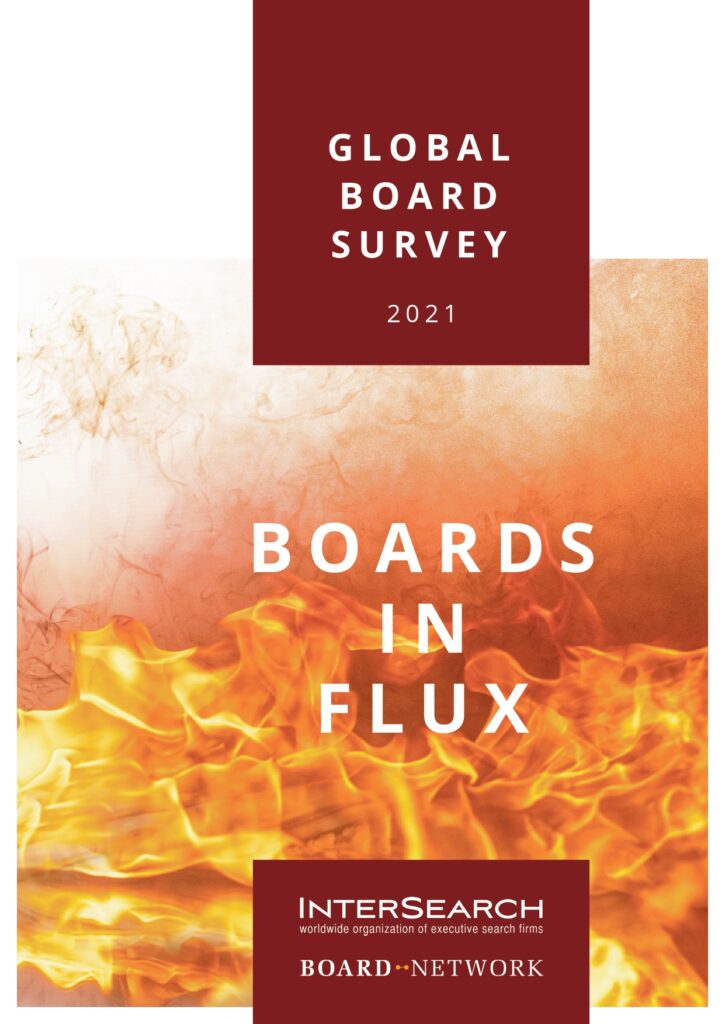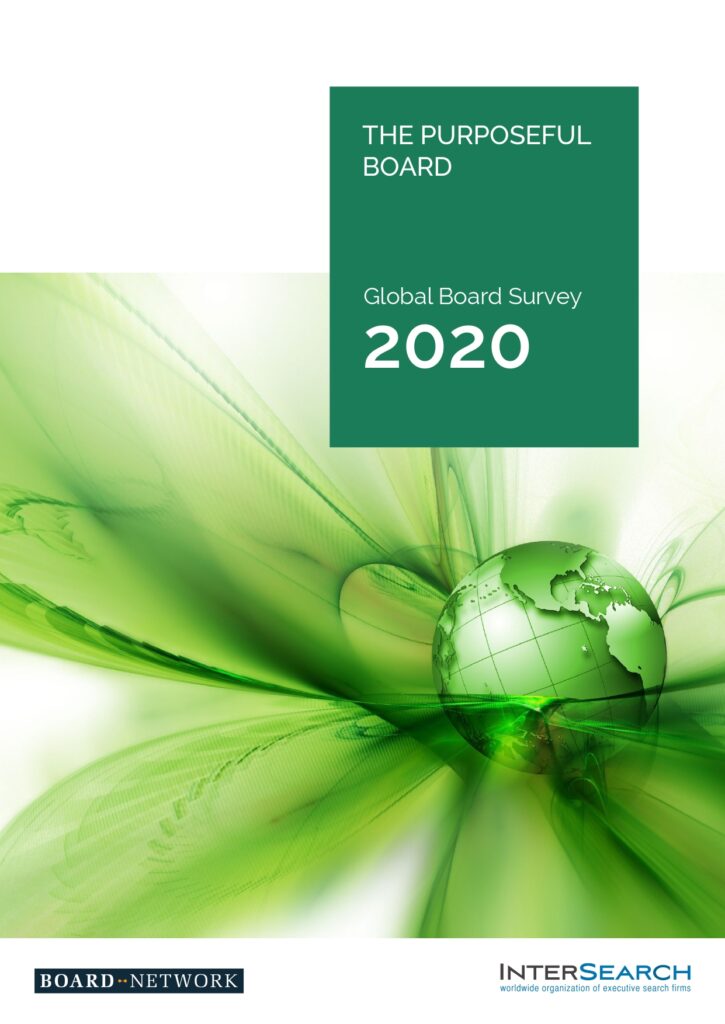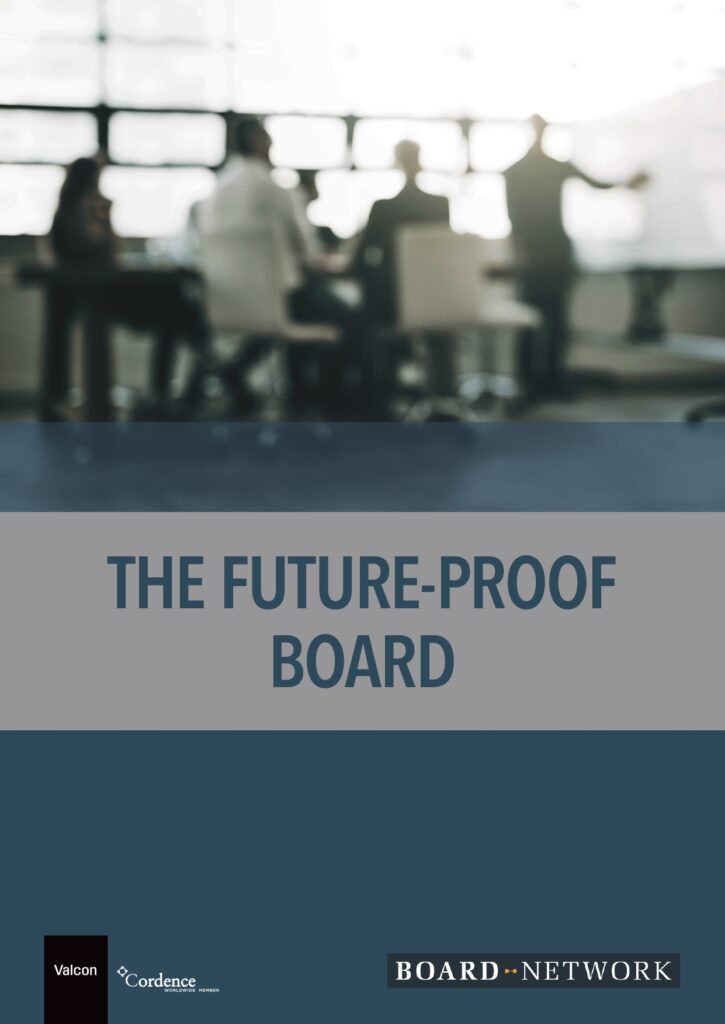Board Surveys & White Papers

Global Board Survey 2021
Boards In Flux

Global Board Survey 2020
The Purposeful Board

Nordic Board Survey 2020
The Future-Proof Board

Global Board Survey 2019
Cerating Impact In And From The Boardroom

Global Board Survey 2018
Board Of The Future - How Boards Take Charge Of The Future

Global Board Survey 2017
Advancing Boards

Global Board Survey 2016
Radical Innovation and Growth

Global Board Survey 2015
Boards In A Disruptive Age

Board Evaluation 2013
When Good is the Enemy of Great
Over the past few years, there has been more focus on the work of boards in general, and in the wake of that attention, more and more initiatives have appeared from shareholders as well as the press and legislators that set demands and expectations for the work of boards. Among these measures are both hard law and soft law, which respectively require and recommend that boards prepare and report on board evaluations. In Denmark, a law has been introduced for financial companies that requires financial companies to carry out an evaluation of the board’s competences. The committee for good corporate governance recommends that (listed) companies carry out board evaluations, and individual sectors have their own recommendations for good board work, where it is also recommended that boards carry out evaluations. In the summer of 2013, BOARD NETWORK and PwC conducted a questionnaire survey on board evaluation. This publication reproduces the results and paints a picture of the facts, attitudes, and trends of working with them. Board evaluation has gained traction in the Danish boards as a tool that can form the basis for ongoing improvements to the board’s work.
Our study shows that boards conduct evaluation to use it as an analysis tool related to which improvements should be implemented and to identify and decide how such improvements can be implemented. The evaluations are also used as a catalyst for the internal, developing dialogue between the board members. A dialogue which the respondents overwhelmingly rate as the most valuable in the evaluation process. In Denmark, evaluations are focused on the entire board collective – thus specific committees are only evaluated to a sparse extent. For the boards that do not carry out board evaluations, the main reason is the company’s ownership structure, according to which board evaluation is not considered suitable. Other factors that often play a role are the board’s internal disagreement about the value of an evaluation, or the fact that there has not yet been time and opportunity to carry out an evaluation. In 2012, statutory competence evaluation was introduced in Denmark in the financial companies. It should be noted, for the sake of clarity, that the term “board evaluation” in this publication covers the considerably broader form of evaluation, which, in addition to a competence screening, also deals with matters such as the board’s internal dynamics, cooperation with the executive board, etc.
With this study, we want to highlight the facts, attitudes and trends among the boards that already carry out evaluations, in the hope of gathering lessons on how boards can do more of what brings value and less of what is just compliance. How do boards best evaluate? The board, like any other part of the company, should strive to create the most possible value for the company it is responsible for. Effective boards are often very aware of how the board year is planned, how board time is used, both at and between meetings, and how they most optimally form a strategic sparring partner for the executive board. Such boards are also aware that to become even better, increase value proposition and constitute a competent sparring partner for the management for the benefit of the company, they must evaluate their efforts, results, and composition, including their individual competencies. This, moreover, is completely in line with the fact that they regularly evaluate the management’s efforts and results and expect the management to similarly evaluate the efforts and results of middle managers and employees.


